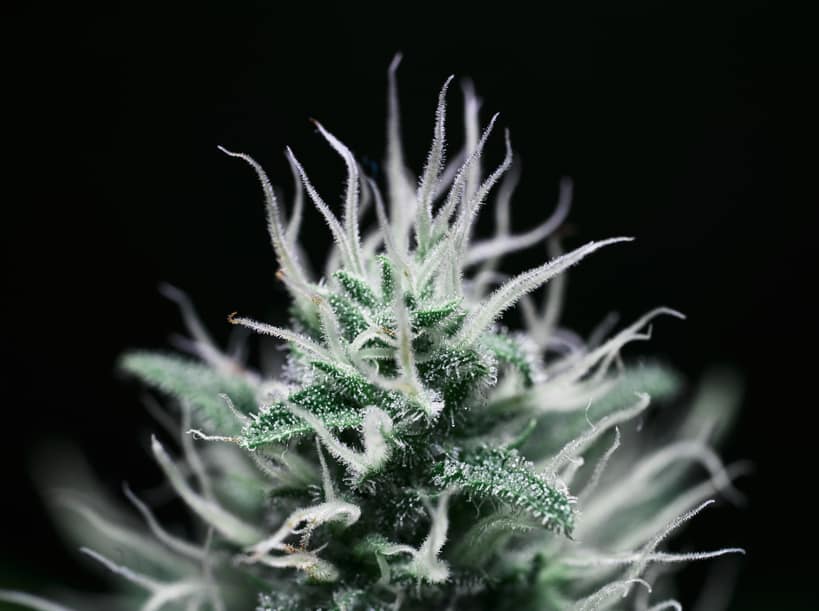WikiLeaf is one of the best-funded and most informative resources for cannabis strain reviews and general cannabis news and information. We commonly reference WikiLeaf at Best Dosage, and in this brief review, we’ll explain why.
WikiLeaf quick facts
- Based in Seattle
- Founded in 2014
- Publicly traded on the Canadian stock market
- Funded by public investment and cannabis business advertising
Dispensary price comparisons
WikiLeaf became somewhat famous early on for its dispensary price comparison function, which boosted the competitiveness of dispensary turf wars. This price comparison function remains a considerable component of WikiLeaf’s functionality.
But WikiLeaf has become so much more.
Dozens of functions
WikiLeaf has rapidly become one of the internet’s best resources of overall cannabis information. This site’s News section is unusually well-written. It’s separated into sections like “Medically Reviewed Articles” and “Popular Product Reviews.”
Then, you can search through strains by name. Instead of assigning bud pics to strains, WikiLeaf comes up with a unique, psychedelic graphic for each review page. There are quite a few different filters you can use to zero in on the strain you’re looking for.
Dispensaries within a certain radius of your location appear in moments using this site’s dispensary locator. You can toggle by dispensaries that are open now or offer deliveries.
WikiLeaf even features reviews of brands. If you’re considering a product at a dispensary made by a brand you’ve never heard of, you can pull up WikiLeaf to find user-generated brand info.
Detailed strain info
Wikileaf’s strain review pages:
- Are extremely detailed
- Are easy to read
- Feature abundant information on uses, effects, and THC content
- Feature a section for user-generated reviews
- Include information on similar strains, Sativa strains, Indica strains, and Hybrid strains
Each strain review on WikiLeaf appears to be at least 500 words long. By the way, I don’t think it’s possible for visitors to edit the content on WikiLeaf, so this site isn’t technically a true “wiki.”
In the text of the review, WikiLeaf gives information on the origins and unique attributes of the strain. Down below are a selection of user reviews. You can also access user-generated strain reviews using a convenient slider at the top of the page.
Wikileaf’s strain review pages are clean and well-engineered, displaying this site’s dedication to becoming the internet’s definitive source of cannabis information. Many strains feature dozens of reviews, showing that people are using WikiLeaf as a place to come together and talk about cannabis.
Considerable funding
WikiLeaf isn’t some random cannabis site off in the weeds. There’s a lot riding on the success of WikiLeaf, and the people who run this up-and-coming cannabis site act like it.
Everything about WikiLeaf is clean, polished, and organized. This site’s sparse “About” page features links to WikiLeaf’s many press releases, some basic site information, and not much else.
This aesthetic reflects WikiLeaf’s origins and mission. Having been purchased by a Canadian holding company owned by Canopy Growth co-founder Chuck Rifici in 2016, WikiLeaf was the first cannabis company to ever launch an in-flight commercial with Virgin America in 2017.
WikiLeaf rubs shoulders with big money. This became abundantly clear when $6.8 million in raised funding showered onto the site’s lap right around the time that WikiLeaf first became listed on the Toronto Stock Exchange in 2019.
Clearly intending to take the world of cannabis by storm, WikiLeaf continues to gain momentum in the highly contentious online cannabis information space. We partially trust WikiLeaf due to the pressure this company is under to fulfill the expectations of its investors.
A growing presence in the cannabis community
WikiLeaf is clearly intended to take on Leafly and Weedmaps as one of the heavy hitters within the cannabis infosphere. In some ways, WikiLeaf has the advantage, and it’s clear that this site’s trajectory won’t be changed easily.
There’s obviously some impressive marketing behind WikiLeaf. This site even has its own store where you can buy branded apparel and advertise WikiLeaf yourself.
WikiLeaf’s ultra-clean, mobile-friendly format appeals to younger cannabis consumers and new adopters who want to quickly and accurately find information on strains, dispensaries, and brands. As WikiLeaf develops, I expect that its guides and news stories will become just as reliable as those produced by Leafly or Weedmaps.
Part of our trust in WikiLeaf derives from its community-centered approach. While not a true wiki, WikiLeaf encourages community feedback, and its core business model is centered around delivering high-quality, useful information to consumers.
Dispensary management and advertising services
WikiLeaf doesn’t only make money by selling stocks and merch. This site also offers advertising services to cannabis dispensaries and brands.
As a dispensary owner, you can start by making an account and claiming your dispensary. Then, WikiLeaf has a whole suite of options you can use to advertise your dispensary to its users.
WikiLeaf leverages user data to provide effective advertising solutions. In this way, WikiLeaf is similar to many non-cannabis tech companies.
Mobile apps and focus on mobile usability
WikiLeaf has had mobile apps in the Apple App Store and Google Play Store since 2016. This site places a firm focus on mobile usability, allowing users easy access to the information they need.
WikiLeaf overall score
After careful deliberation, we give WikiLeaf a near-perfect score of 4.96 out of 5.
Authority: 5/5
Clarity: 5/5
Sourcing: 4.9/5
Topics: 4.9/5
Community: 5/5
Backed by considerable funding and a wealth of user-generated content, WikiLeaf is an unquestionable authority within the cannabis information industry. This site’s content is clear and accessible.
Some of WikiLeaf’s in-depth guides could be better-sourced. At this point, WikiLeaf’s array of published material can’t be considered truly exhaustive.
The bones of a highly effective, massively informative cannabis data powerhouse are indisputably there, however. WikiLeaf is already one of the best resources for strain-related information, and it’s on its way to becoming one of the world’s most definitive sources on everything cannabis.
By posting cannabis user reviews and helping dispensary and brand owners make their businesses seen, WikiLeaf deserves accolades as an agent of industry change. WikiLeaf will remain an important Best Dosage resource for the foreseeable future.

